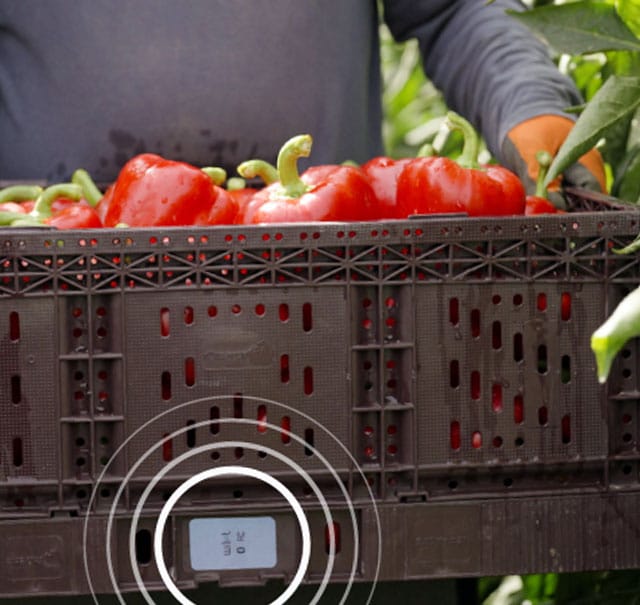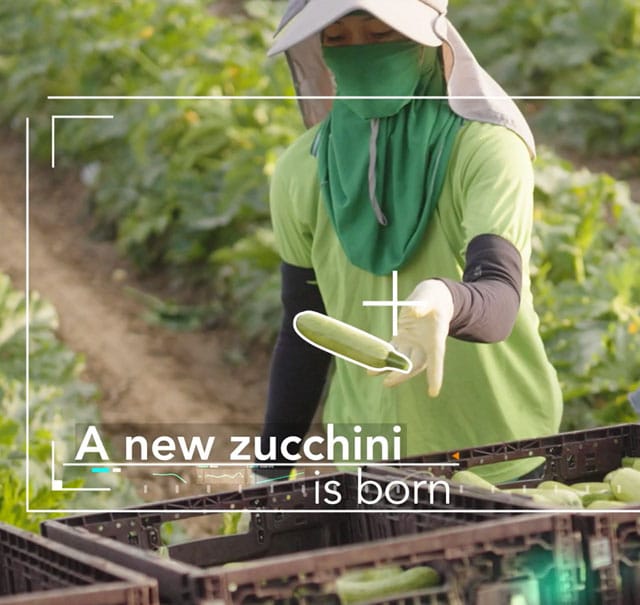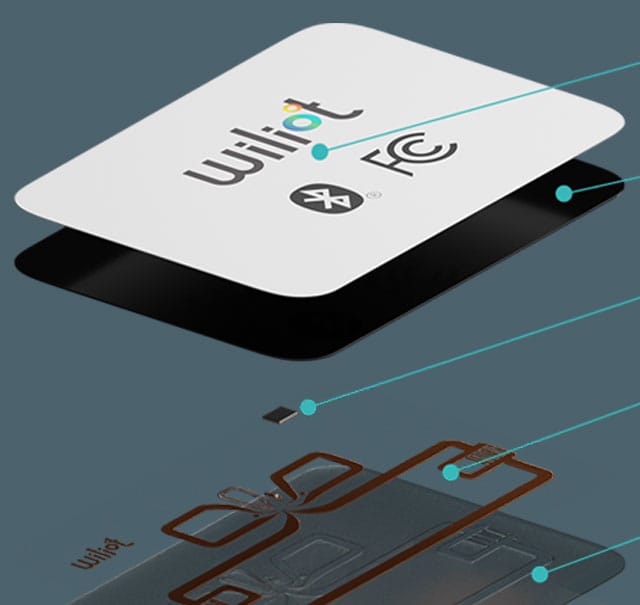Retailer Shufersal First to Use IoT Pixel for Temperature Control
By the end of 2023, one million vegetable crates will be equipped with the IoT Pixel.
Teaser
The Israeli supermarket chain Shufersal focuses on two quality strategies: fresh, pesticide-free food and the prevention of food waste. In 2021 alone, 35 percent of the food produced in Israel was thrown away – half of which was still edible.
With Wiliot's battery-less bluetooth IoT Pixel currently on 150,000 vegetable boxes, Shufersal manages the logistics chain and monitors the temperature of vegetable products. The IoT Pixel transmits precise data on the ambient temperature of the vegetables from harvesting on the plantations to the end consumer. The objective of the temperature control is to ensure quality.
Tadbik developed a laminate for the IoT Pixel labels to ensure the resistance of the Pixels to temperature fluctuations, cleaning agents and steam.

Retail Chain Shufersal uses IoT Pixel from Wiliot for Temperature Control.
Bluetooth Tag for Vegetables Crates
Shufersal Integrates Wiliot IoT Pixel into Vegetable Crates
Using Wiliot's new Reusable Transport Item (RTI) solution, Israel's largest retailer is the first in the world to control its smart supply chain from farm to store, continuously monitoring the location and temperature of produce to ensure freshness for its customers. The goal of integrating IoT Pixels on vegetable crates is to transparently map the ambient temperature of the supply chain from harvest to warehouse and even to the supermarket. The IoT Pixels digitize the crate by sending up-to-date temperature and location data to the Wiliot Cloud when activated. Together with other data stored in the Wiliot Cloud, the user can draw conclusions about the shelf life of the crate's contents on the screen and make real-time recommendations for action. The solution allows companies to continuously track not only their reusable shipping items, but also the contents. Shufersal can accurately track inventory, monitor shipping and delivery, preserve freshness, extend shelf life and dramatically reduce waste.
Vegetables that have a shorter shelf life than others, for example, are then stored at the front of the warehouse so they can be delivered to supermarkets first. Fresh vegetables not only sell more easily; they are also consumed more often instead of being thrown away.
The IoT Pixel from Wiliot
The Wiliot IoT Pixel is a self-powered Bluetooth computer the size of a postage stamp. It is equipped with a computing unit and a temperature sensor. It can be used to locate individual boxes within a warehouse or delivery vehicle. The IoT Pixel is activated by radio waves emitted by Bluetooth devices. Within a second, the Pixel is charged. It can then transmit data continuosly. The Pixel resembles an adhesive label.
Tadbik and Wiliot are Partners of Shufersal
Prior to the rollout, a six-month pilot phase with vegetable boxes took place at Shufersal in the summer of 2021. For both the test phase and the rollout, Tadbik supplied the IoT Pixels in the form of labels. While the labels were not specifically laminated during the test phase, after the pilot phase Tadbik developed a laminate for the labels that was specifically designed for Shufersal to ensure the resistance of the Pixels to temperature fluctuations, cleaning agents and steam. After each use, the vegetable crates are cleaned with steam and chemicals.
Rollout at Shufersal
During the initial phase of the rollout in 2022, 150,000 boxes were tagged. By the end of 2023, one million RTIs will be equipped with IoT Pixels and a wireless communication infrastructure will be installed to support around 250 farmers and retailers and 300 Shufersal stores. The solution will even include wireless readers and mobile network gateways on farm tractors to ensure supply chain visibility all the way to the borders.

IoT Pixels are self-powered, postage stamp-sized computers that communicate wirelessly with the Wiliot cloud and can sense a range of physical and environmental conditions, such as temperature, location changes, and whether the box is full or empty. The IoT Pixel features an additional transparent protective layer on top. A label is affixed to each side of the RTIs. In case one label loses functionality, the other labels secure the temperature data measurement. The expected lifetime of an IoT Pixel is four years.
Shufersal
- Shufersal was founded in Israel in 1958
- Largest retail chain in Israel
- 272 stores
- 13,500 employees
- 3 logistics centers
- Cold chain logistics in Shoham on 37,000 m2
- 40 million cartons in incoming goods per year
- 450 trucks in operation every day
- IoT pixels are an invention of Wiliot
- IoT pixel tags designed by Tadbik





